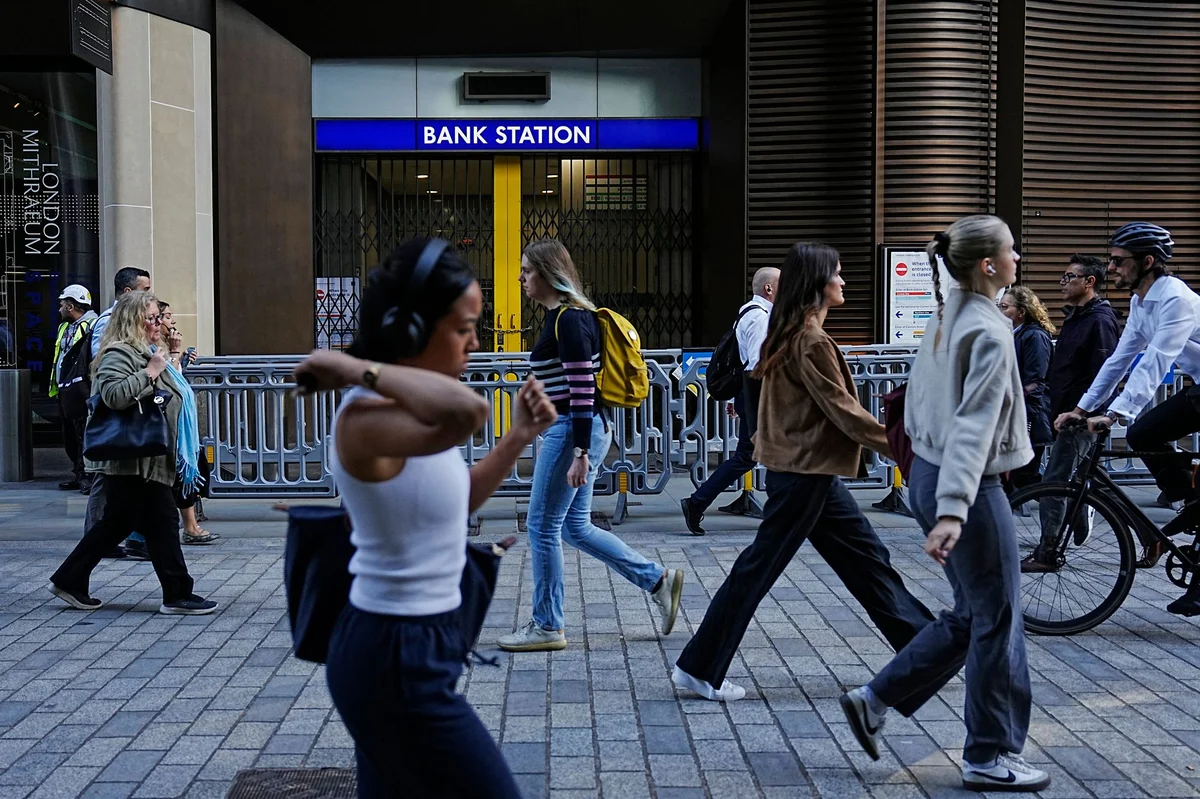By Maddy Mussen
Copyright standard

If you’ve spent one of your mornings this week crammed onto public transport like the titular pois in a bag of petis pois, I just want you to know that Gen Z are laughing at you.
Or, more aptly, they’re laughing at the situation you’ve been put in by your employer. An employer who likely made adaptations for their entire workforce to work remotely just over five years ago, when the country was plunged into lockdown — but apparently that’s not an option this week.
Over on X and TikTok, Tube strike support from young people is high. Images of Londoners shoulder-to-shoulder on the remaining parts of active public transport aren’t inspiring ire or disgust at RMT members and striking rail workers. Far from it.
This disgust has been turned towards the bosses who have made their employees travel in despite the strikes. And, yes, a little bit of laughter is being levied at the employees who have travelled in so willingly, with some branding the loyal worker bees “simps” for their employers.
For many Gen Zs, hybrid working has always been the norm. Only the oldest of Generation Z office workers, the 28 and 27-year-olds, will have experienced working full-time, Monday to Friday, pre-Covid. So, yes, watching older generations so willingly fight through hell and high water to get into an office that didn’t exist five years ago is laughable to us.
Gen Z also have a work-to-rule attitude and a generalised disrespect for employers. And why wouldn’t they? The majority of my generation’s working lives have been spent battling ceaselessly against the tide of a cost-of-living crisis. The drive to work for promotion has disappeared, given that many promotions either do not exist or would fail to offer Gen Zs a demonstrably different quality of life. Plus, they’re no longer working towards material goals, like owning a house in London, because these goals now feel nigh-on impossible.
So, yes, Gen Z are laughing at you for clamouring your way into the office, because they would never.
Read more: Gen lay-Z: Why my generation doesn’t care about work
Read more: Gen Zs on the ways they’ve stolen time (and money) from employers
Of course, there are exceptions: key workers and people who work in the service industry, most notably. But if anything, office workers should be freeing up public transport for these people — the people who need to get to work in order to do their jobs. Not the people at the whim of a boss who sure as hell knows how to hop on a Teams call.
In one memorable post on X this week, a worker shared a note seemingly from their boss, instructing them to be on time “as normal” and pointing to alternative forms of transport. “There is always a Boris bike,” the email signs off. Many of the replies have instructed the individual to quit their job.
You can understand some of the incredulity. This employer’s request would be reasonable — had the country been collectively brainwashed to forget 2020, 2021 and the most part of 2022, where working from home and hybrid working were the norm.
Some young people are even lobbying for more strikes. “Do the buses too, cripple the system until you get what you want xoxoxoxoxoxoxoxoxoxoxoxoxox,” one X user posted on Tuesday.
In an era where trade unions are essentially a myth to the young, RMT is a bastion of shining liberty. It has shown Gen Z that there is some benefit to be gained from their natural anti-work ethos. Instead of working harder to try and get improved conditions and increased pay, you could get it if you anti-work hard enough instead.
Let’s be clear: this isn’t spiteful. Gen Z don’t just blindly hate the older generations. But they do think that if you blindly love your employer, you need to have a good, long look at yourself in the mirror. Or the bus window. God knows you’ll have the time for it.



